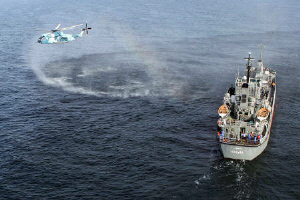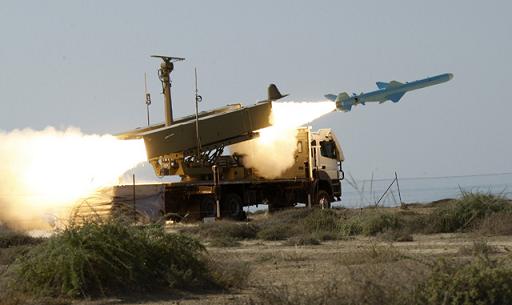“We advise and insist that this warship not return to the Persian Gulf, we warn only once”
|
|
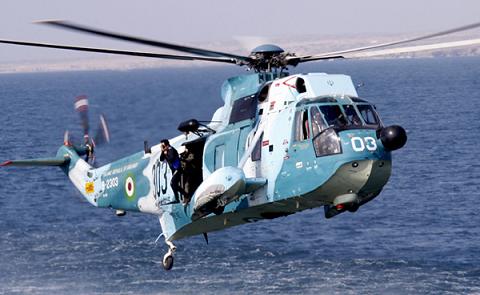 |
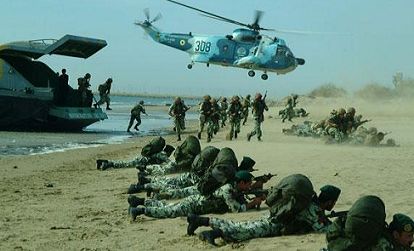 |
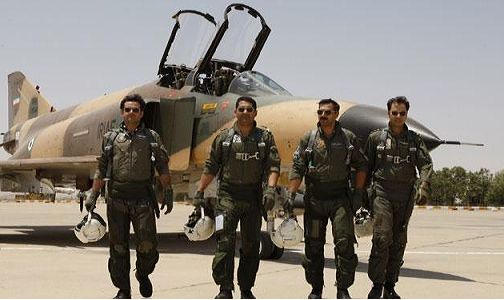 |
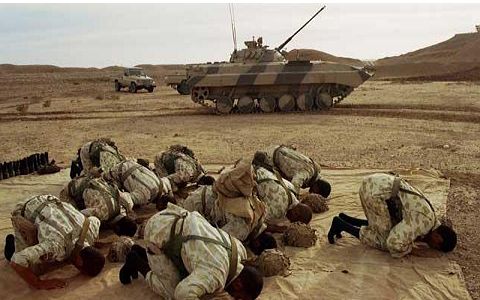 |
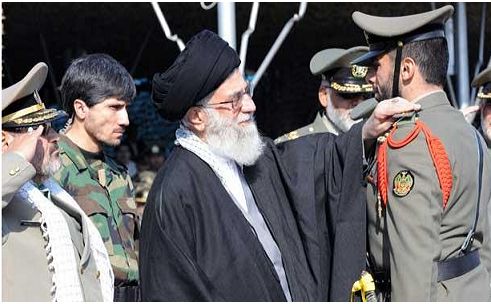 |
|
Pictures of Velayat-90 drills from |
One day after Iran concluded its Velayat-90 drills, Iranian Army Commander Brigadier General Ataollah Salehi warned US aircraft carrier from returning to Gulf waters, adding “we warn only once.”
“We advise and insist that this warship not return to its former base in the Persian Gulf,” Salehi told reporters on Tuesday, according to the armed forces website. “We don't have the intention to repeat our warning, and we warn only once,” he was quoted as saying.
The US aircraft carrier, USS John C. Stennis, is one of the US navy’s biggest vessels. The aircraft carrier was identified in the area where the Velayat-90 drill were underway. The US Defense Department said the passage was “routine” due to the fact that the US maintains strong naval presence in the Gulf.
Iran warned during the maneuvers that if western powers imposed sanctions on its crude exports it could shut the Strait of Hormuz, through which 40 percent of the world's traded oil is shipped.
The U.S. Fifth Fleet, based in the Strait of Hormuz in Bahrain, said it would not allow shipping to be disrupted in the strait.
Three powerful missiles (ground-to-ship cruise missile “Qader”, surface-to-surface missile “Nour” and a “Nasr” anti-ship missile) were successfully test fired at the last day of Iran's navy 10 days of maneuvers at the entrance to the Gulf.
Spokesman for the naval war games Rear Admiral Mahmoud Mousavi said that all the planned objectives of the drills were achieved.
The Deputy Navy Commander told IRNA that the ten-day exercises were valuable experience that displayed Iran’s strength in the international waters.
In response to the Iranian maneuvers, French Foreign Minister Alain Juppe claimed that Iran was continuing to develop nuclear weapons and called for stronger sanctions against Tehran. “The last report by the International Atomic Energy Agency is quite explicit on this point,” he told French television I-Tele, adding “this is why France, without closing the path of negotiation and dialogue with Iran, wants stricter sanctions.”
However, Russian Defense Ministry Spokesman Vadim Koval said Iran does not have the technology to create intermediate or long-range inter-continental ballistic missiles. “And it will not get such missiles any time soon,” he told the Interfax news agency.
